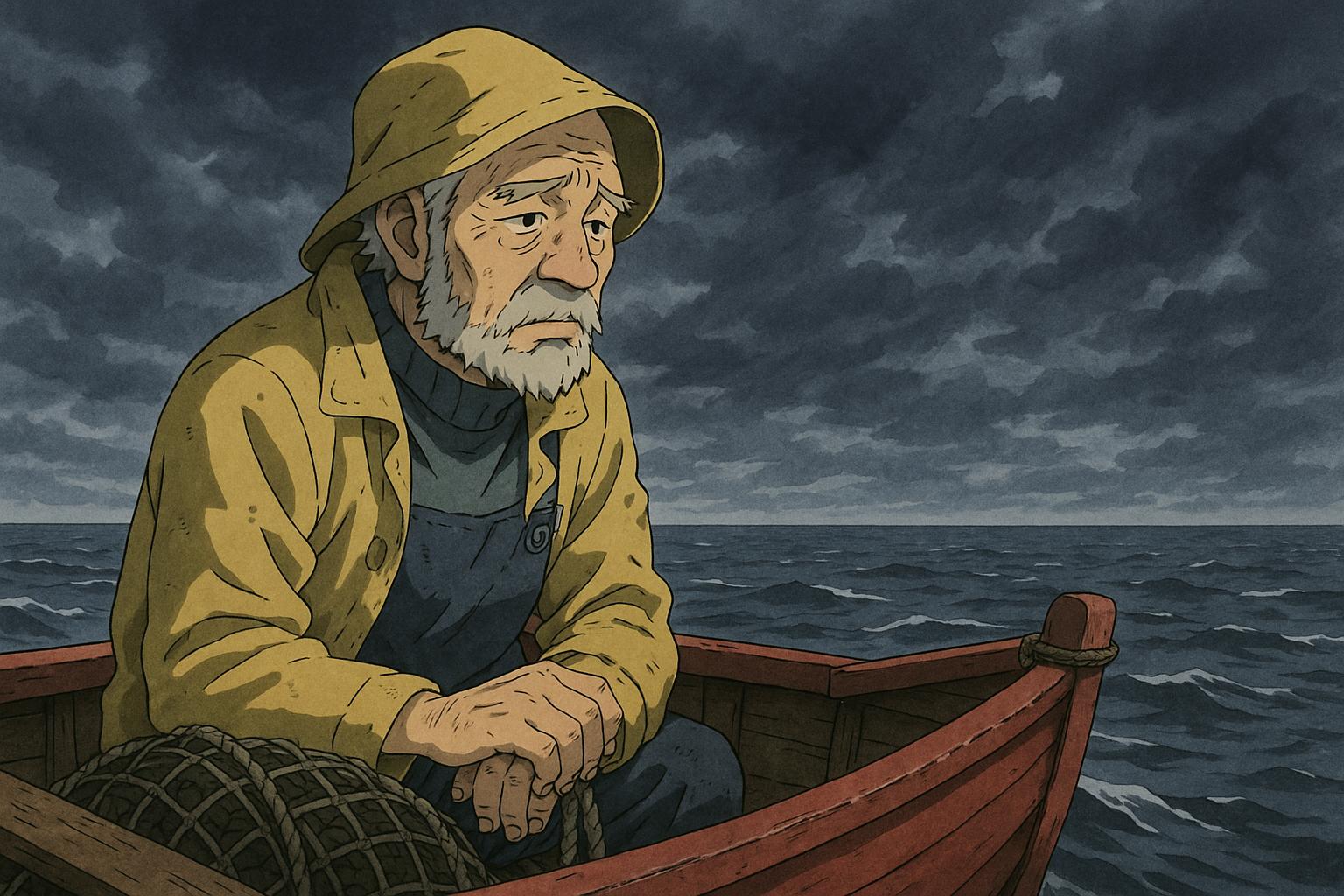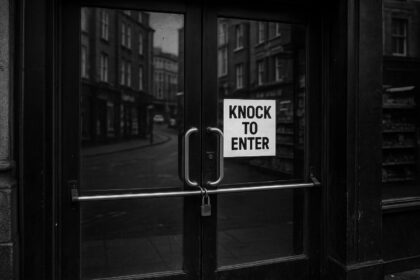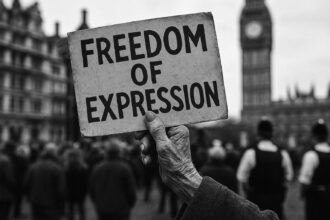Once a thriving trade for families like the Cokers in Kent, British cod fishing faces near extinction amid aggressive foreign fleet practices and extended EU access to UK waters, sparking fears over ecological damage, cultural loss and shattered Brexit promises.
In the heyday of British fishing, the sturdy red vessel, Royal Charlotte, was a staple in the English Channel, laden with vast catches of cod brought in by the Coker family. Forty years ago, Kent fishermen could expect to haul in hundreds of cod daily, a scenario starkly contrasted with the alarming current reality where cod stocks have plummeted towards extinction. As Mickie Coker, 73, reflects while aboard the very same boat now used mainly for pleasure trips, the frequency of cod catches has dwindled to near zero. Last year, he lamented, the Cokers managed to catch just one cod.
The rationale behind this stark decline, according to Mickie and his son Matt, lies predominantly in the aggressive fishing practices employed by foreign EU fleets. “Their mindset is different from ours,” Mickie asserts. “They think if we can’t catch it today, someone else will. They exhaust a location until it’s empty before moving on.” This relentless pursuit of fish, particularly cod, has contributed to a catastrophic ecological imbalance, leaving surviving fish unable to breed due to an absence of mates, as Mickie poetically summarises: “They can’t find others to tango with.”
The situation has reached a point of acute distress for the Cokers and many other fishermen who feel betrayed by government policies regarding fishing rights. Recently, the Prime Minister signed a new agreement with the EU that extends access for foreign fleets to British waters for an additional twelve years, countering earlier Brexit commitments that aimed to reclaim full control by 2026. The deal has been met with fierce criticism, mainly from those who argue that it further undermines the struggling domestic industry while reinforcing the dominance of subsidised foreign fleets. Notably, a commentary piece in the Spectator emphasised: “Every fish caught by a foreign fishing boat is one that can’t be landed, processed, and sold by British fishermen.”
The UK fishing industry, which once played a central role in local economies and traditions, has drastically changed. Recent statistics reveal a staggering decrease in the number of UK vessels, with a drop of 52% from over 11,000 to about 5,500 in three decades. The Royal Charlotte, launched in 1976 specifically for local fishermen, has become an emblem of this decline. Matt Coker expressed disillusionment, lamenting, “We believed the promise that it would soon end. Now we feel betrayed.”
The footprint of industrial fishing, particularly that of supertrawlers engaging in what many claim is destructive fishing, has exacerbated the situation. These enormous vessels, some over 100 metres long, utilize mile-long nets to scoop vast quantities of fish, contributing to significant ecological damage in protected marine areas, as highlighted by numerous environmental groups, including Greenpeace. They found that these supertrawlers spent nearly 3,000 hours fishing in designated Marine Protected Areas (MPAs) last year, a practice that undermines the intent behind such designations.
Meanwhile, local businesses have suffered, as evidenced by Giorgio Krousti, who runs a popular fish and chip shop in Folkestone. He points out that the cod served at his establishment is now sourced from distant waters rather than the nearby, once-abundant Kentish waters. Such shifts underscore a broader trend where catering firms are turning to imports for sustainable fish, resulting in an estimated £62 million annual loss for the UK fishing industry.
While the UK government maintains that strict regulations are necessary to ensure fish stock sustainability, recent studies reveal a paradox whereby the very measures intended to protect local fisheries have inadvertently pushed local fishers toward a precipice. Notably, findings from the University of York indicate that small boat fishermen, who had hoped for increased quotas and market access post-Brexit, have faced escalated operational costs and challenges, leaving many feeling utterly disillusioned.
Amidst this backdrop, the Cokers remain hopeful yet uncertain about the future of their family legacy. Matt fears for his ten-year-old son’s potential as a fisherman, pondering whether he will ever have the opportunity to experience the rich traditions of the fishing community that have defined generations before him. “He loves everything about fishing, but there might not be any fish left in the Channel when he grows up,” he says with a heavy heart.
The plight of the Coker family resonates beyond their intimate narrative, reflecting a larger national tragedy. As the once-vibrant fishing industry seems to fade away, one is left to ponder not only the environmental implications but the cultural heritage that may soon vanish from the shores of the UK. The fishing community, long integral to Britain’s coastal identity, faces an uncertain future, caught in a web of political decisions and ecological challenges that threaten to sink a deep-rooted tradition beneath the waves.
Reference Map:
- Paragraph 1 – [1]
- Paragraph 2 – [1], [3], [7]
- Paragraph 3 – [1], [4], [5]
- Paragraph 4 – [1], [6]
- Paragraph 5 – [1], [6]
- Paragraph 6 – [1], [2]
- Paragraph 7 – [1], [3], [4]
- Paragraph 8 – [1], [7]
- Paragraph 9 – [1]
Source: Noah Wire Services
- https://www.dailymail.co.uk/news/article-14743529/We-used-catch-hundreds-cod-day-year-just-ONE-One-fishing-family-reveal-truth-EU-monster-trawlers-thatve-decimated-waters-Starmer-surrenders-foreign-fleets.html?ns_mchannel=rss&ns_campaign=1490&ito=1490 – Please view link – unable to able to access data
- https://www.ft.com/content/458d810c-a9d4-41ef-9ff2-4032571ea0fa – Denmark and Sweden are urging the EU to confront the UK over a ban on catching sand eels at Dogger Bank in the North Sea, which the UK implemented for environmental reasons. The ban, set to take effect next month, has angered Danish and Swedish fishers who rely on sand eels for pig feed and fish oil production, potentially costing Danish fishers €18 million annually. Denmark argues the ban is discriminatory since their vessels account for 99% of the catch. The UK defends the ban as a measure to protect marine habitats and seabirds, in accordance with scientific advice and the post-Brexit Trade and Cooperation Agreement (TCA). The European Commission is being pushed to review whether the ban breaches the TCA, which could lead to trade repercussions for the UK. Despite support for the ban from conservation groups, some EU diplomats are reluctant to escalate tensions with the UK.
- https://www.fishmag.co.uk/overview-of-uk-fisheries-2022/ – The UK fishing industry has experienced significant changes over the past three decades. The number of UK fishing vessels has decreased by 52%, from over 11,000 to approximately 5,500. The power (kW) of the UK fleet has also decreased by 41%. This transformation is due to both national and international policies aimed at ensuring the sustainability of fish stocks, including greater controls on fishing opportunities and fleet capacity reductions through decommissioning exercises. Additionally, just 4% of UK vessels, the largest vessels over 24 meters in length, account for over 75% of the total quantity of fish caught, highlighting the dominance of larger vessels in the industry.
- https://www.the-independent.com/news/business/news/uk-sustainable-fish-fisheries-post-brexit-foreign-competitors-a8395726.html – UK fisheries are losing out on up to £62 million per year as catering firms go overseas to purchase sustainable fish, according to new research. An investigation by campaign group Sustainable Fish Cities has revealed UK fish buyers are importing more sustainable varieties of fish, traditionally caught in British waters, from the USA, Turkey, Greenland, and South America rather than risk selling fish that is unsustainably caught from UK waters. The contract catering sector sells £87 million worth of fish every year, and data compiled by Sustainable Fish Cities show 71% of it is imported, equating to a potential £62 million annual market the UK fishing industry is missing out on. The move towards buying more sustainable fish follows years of campaigning by charities such as the Marine Conservation Society (MCS) and high-profile chefs including Jamie Oliver and Raymond Blanc.
- https://inews.co.uk/news/environment/foreign-supertrawlers-fishing-uk-protected-waters-443096 – Foreign ‘supertrawlers’ the length of 14 fishing boats spent almost 3,000 hours touring protected waters around the British coast in 2019, scooping up thousands of tons of fish from sites designed to preserve marine wildlife. A Greenpeace investigation has revealed 25 supertrawlers, owned by fishing firms from Russia, the Netherlands, and Poland, spent the equivalent of 123 days fishing in UK Marine Protected Areas (MPAs) last year. The amount of time supertrawlers have spent in UK MPAs has been climbing steadily since 2017, Greenpeace said. Supertrawlers stretch over 100 meters in length, and catch hundreds of tons of fish every day using nets up to a mile long. They are legally allowed to fish in UK MPAs. But allowing such activity “makes a mockery” of the notion MPAs are protected spaces, argued Chris Thorne, oceans campaigner at Greenpeace. “Even an hour of super trawler activity inside an ecologically sensitive marine environment is too much, let alone almost 3,000,” he said.
- https://www.telegraph.co.uk/news/2020/06/10/supertrawlers-spend-three-times-long-fishing-british-waters/ – Supertrawlers should be banned from fishing in the UK’s most vulnerable waters, activists have said, after figures showed they spent three times as long here than anywhere else in the EU last year. Supertrawlers, defined as freezer trawlers over 100m in length, spent 10,425 hours in British waters in 2019, according to Greenpeace. That compared to just 3,230 hours off the coast of the Netherlands, the next busiest waters in Europe. The number of hours spent fishing in British waters nearly doubled since 2017. There are concerns that operators of the trawlers are making unnecessary trips in order to raise their baseline in any post-Brexit negotiations over fishing quotas. “The daily catches made by one of these vessels in the English Channel as reported by the owners last year were not economically viable according to a pelagic fishing expert,” said Jeremy Percy, the director of the New Under Ten Fishermen’s Association. “If so then it is thought that the vessels were more interested in building up a track record to support post Brexit claims for continued access.” Greenpeace also found that supertrawlers spent 2,963 hours – or 123 days – fishing in UK Marine Protected Areas (MPAs), which are created to protect important marine ecosystems. Supertrawlers can catch hundreds of tonnes of fish every day using nets up to a mile long and there are concerns that they may destroy the vulnerable marine life. In one of the most heavily fished areas, the Southern North Sea off the east coast of England, 1,105 porpoises were killed by fishing nets last year. Nine of the supertrawlers that spent the most time in MPAs were Dutch owned, including the four biggest in the world. A further 5 were Russian-owned, and one was Polish-owned. Greenpeace has called for supertrawlers to be banned in MPAs, a move that would be compatible with recommendations in a government-backed review this week for the establishment of Highly Protected Marine Areas. So-called HPMAs would see fishing, construction and dredging banned in the most sensitive coastal spots. Chris Thorne, Oceans Campaigner at Greenpeace UK, said: “Our government allowing destructive supertrawlers to fish for thousands of hours every year in Marine Protected Areas makes a mockery of the word ‘protected’.
- https://westcountryvoices.co.uk/how-fishing-was-gutted-by-brexit/ – A report published by the University of York in 2022 found that despite promises of radical reforms to help the industry ‘take back control’ of British waters and increased quota shares, the reality was far from that. The Brexit deal that was signed gave EU vessels continued access to British waters, and increased new regulations and logistical hurdles, making exporting slower and more expensive. Fish is a product where freshness is key and many UK fisherman lost customers as a result. The report found that small boat fishermen have seen few, if any benefits. Instead, there have been increased costs and challenges. Lead author of the York study, Dr Stewart, said: “Many people in coastal communities who were pinning their hopes on post-Brexit reforms feel betrayed and this comes at a significant cost to their wellbeing and mental health.” Former Brexit party MEP, June Mummery, despite campaigning for Brexit, has been very vocal about the damage done. She said in 2023: “What fishing industry? We’ve completely lost it. The industry is practically gone and is on its last legs.” For an industry where nine out of 10 people voted to Leave the EU, this has been a bitter pill to swallow.













